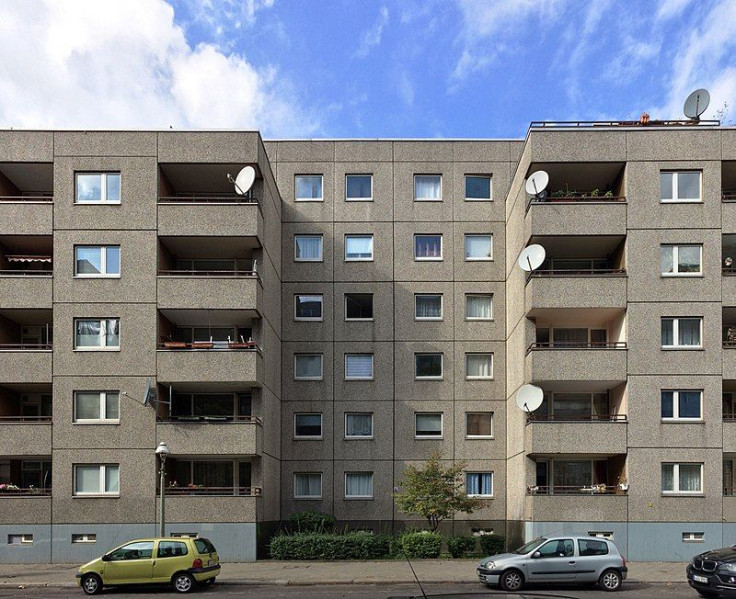Berlin Freezes Rents For Five Years To Slow Down Surging Property Prices, Discourage Exodus

KEY POINTS
- Rents in Berlin have doubled over the past five years
- Landlords face heavy fines if thet break the rent law.
- Rents in Berlin actually remain lower than in London, Paris, New York and Los Angeles.
A five-year rent freeze went into effect on Sunday for up to 1.5 million homes in Berlin, Germany in an effort to tamp down escalating property prices and prevent a mass exodus out of the city.
The law passed with support from Berlin's leftist ruling coalition, comprising the Left Party, the Greens, and the Social Democrats.
Rents in these properties will remain fixed as of June 18, 2019, marking the day the state Senate started deliberating on the measure.
For many Berlin landlords, the law will force them to lower rents by as much as 40%.
Landlords who raise rents will face a fine of up to $542,000 for each violation.
After the five-year term expires, the law will cap rent increases to 1.3% per year in line with inflation.
The law will not apply to government-owned social housing (which have rent control features already) or properties that were constructed after January 1, 2014.
Tenant groups applauded the law.
“It is correct that Berlin tries to stop the spiraling rent costs,” Ulrich Ropertz, the head of the German Tenants Association. “The federal legislature has missed the opportunity to pass effective measures in recent years."
Senator for Urban Development Katrin Lompscher said the new law will "bring the rent level in Berlin back into balance.”
"The government has the responsibility to ensure that people have a roof over their heads. Even though the law is likely to be subjected to judicial review, we are confident in its implementation," she added. "The next five years are going to be used to noticeably improve the housing market.”
Residential rental prices have doubled in Berlin over the last 10 years.
A Global Residential Cities Index published by property consultant Knight Frank revealed that Berlin's rents were rising faster than anywhere else in the world. Rents jumped by 21% from 2017 to 2018 alone.
“It’s become really, really hard to find an apartment in Berlin,” said Lena Vasiljeva, a 36-year-old software developer from Russia. “Even though [my husband and I] both have well-paying jobs, trying to find an apartment in Berlin is no fun at all.”
A study released by a nonprofit project called Mietenwatch discovered that only 4.4% of apartments in Berlin's rental market would be affordable for a single individual based on the city's average net monthly income.
"The rents have been rising nonstop for 10 years, and the incomes aren't rising at all," said Oleg Mirzac, a Berlin resident.
Barbara Steenbergen, head of the EU liaison office at the International Union of Tenants, does not think the rent freeze is extraordinary. In the past few years, Spain and the Netherlands have enacted such measures nationwide.
"It's nothing extremely special," she said. "Actually I was more or less waiting for something [like this] to happen in Berlin. There is a common understanding that it is necessary to regulate housing markets, because housing markets do not work by themselves. If you don't regulate, there is always a shortage of cheap rental housing, while there is always enough expensive housing and property to buy, because that is where investors can make profits."
The New York Times wrote: “Renting is more common in Germany than homeownership, with more than half of the country’s residents renting their homes. In Berlin, a city of three million people, only 18% of residents own their homes.”
Critics of the law, including opposition parties, housing and real estate industry representatives, and construction companies asserted it may place property-related jobs at risk and hinder real estate investments in the city. Members of the Christian Democratic Union called the law unconstitutional and vow to challenge it in court.
“The law is not a solution for the continuing housing shortage. The freeze does not help anybody if, in the end, saved rent has to possibly be paid back," the Christian Democrats wrote.
Wibke Werner, deputy director of the Berlin Mieterverein renters association, said: “some investors will certainly be frightened away from Berlin by the rent cap, but it’s no big loss to see them go because they were evidently only interested in making lots of money.”
Werner added: “Sure, it’s intervening in the free market. But regulation is needed when markets get out of control. The rent cap will give renters in Berlin breathing space for a few years so that the supply can hopefully catch up with demand.”
The rent freeze was partially enacted in response to studies which revealed that many German families have been departing urban areas, like Berlin, Munich and Hamburg, for cheaper accommodations in the suburbs.
"Families are drawn to the surrounding areas," Nikola Sander, research director for migration and mobility at the Federal Institute for Population Research.
However, on an absolute basis, rents in Berlin actually remain lower than in London, Paris, New York and Los Angeles. The average monthly rent for 900-square-foot flat in Berlin is about $600, up 60% since 2000.
© Copyright IBTimes 2025. All rights reserved.





















